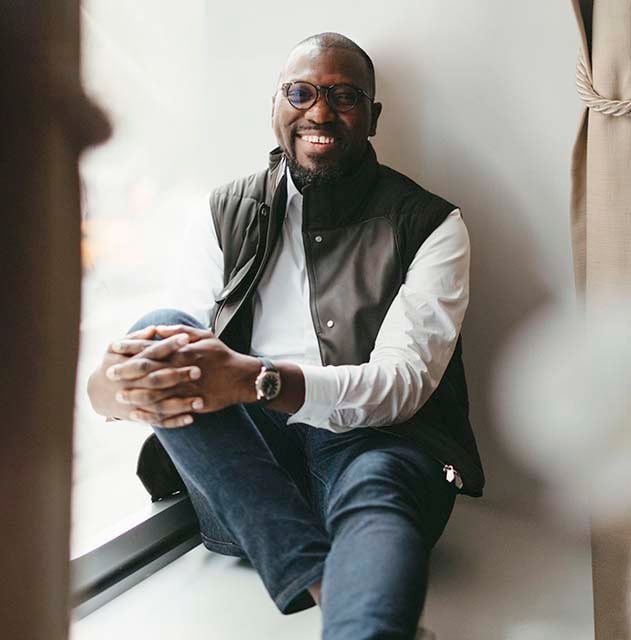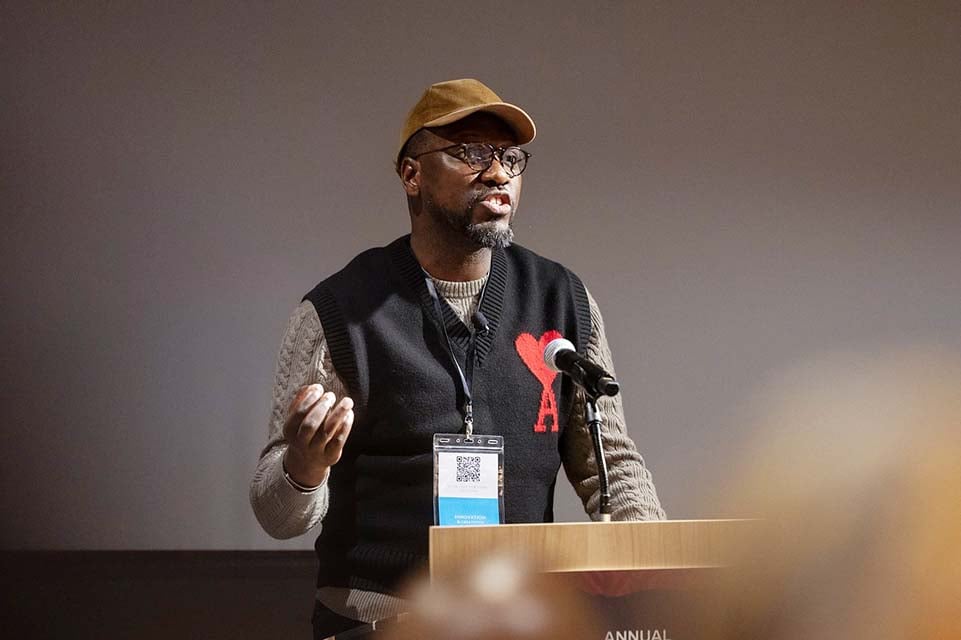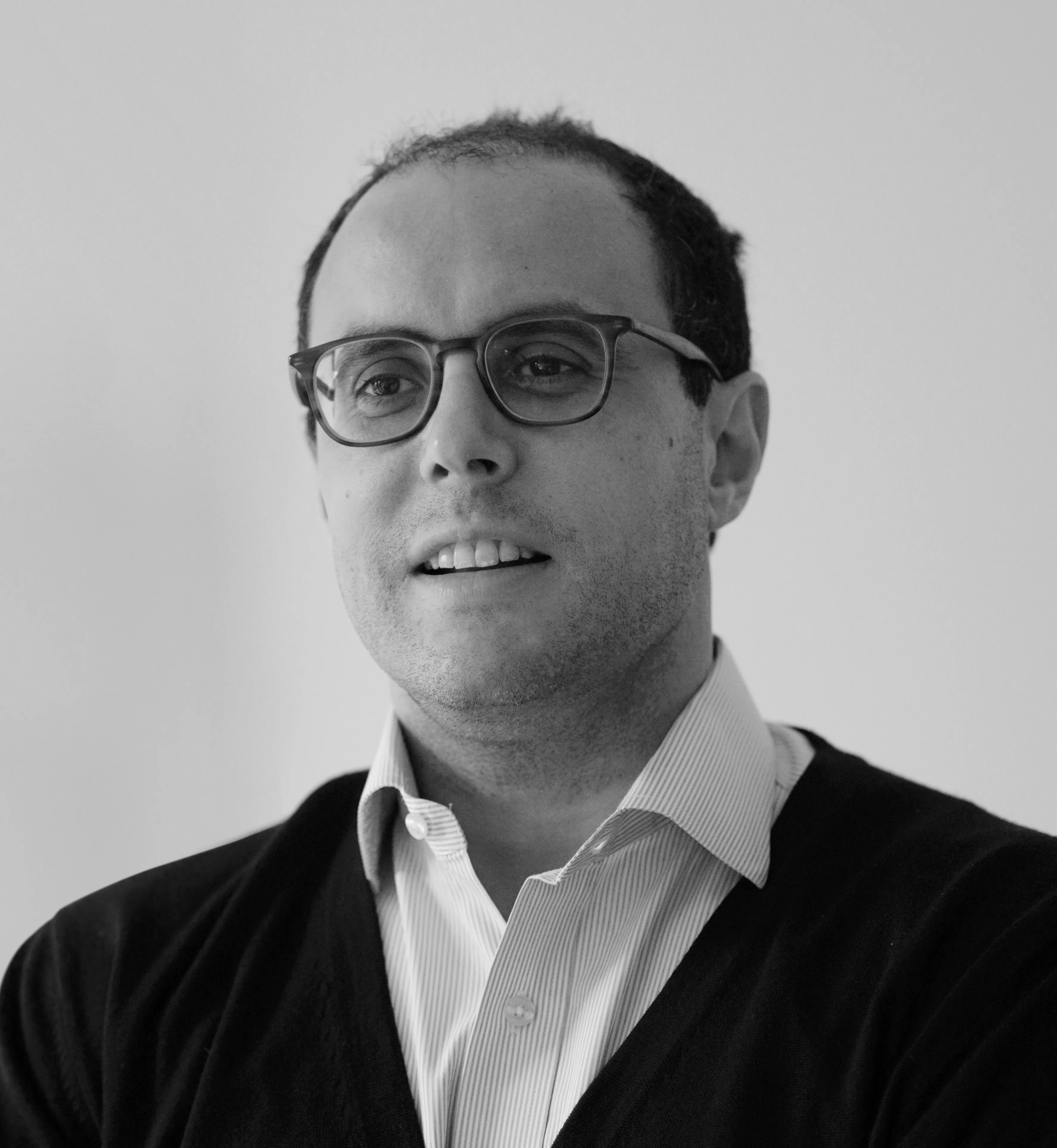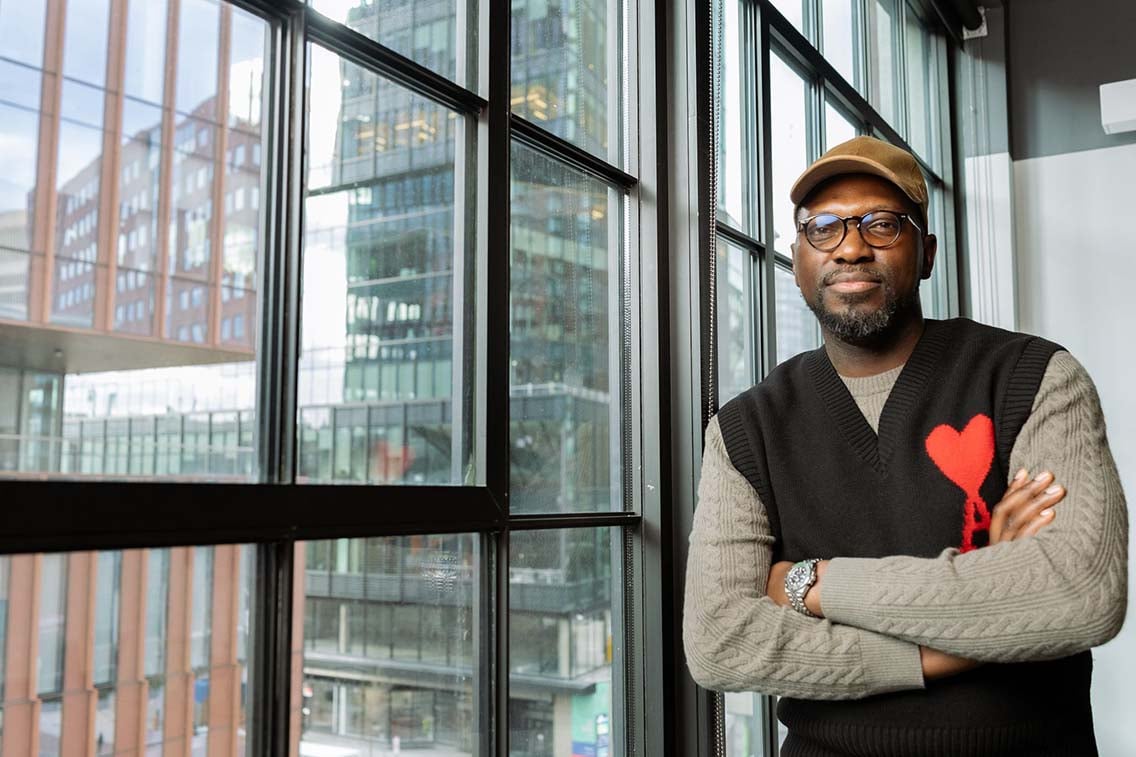
For decades, payment systems in Africa were just another area in which the continent lagged behind much of the rest of the world. Today, it is estimated that there are over 1,000 fintech companies working in or on African payment systems, nearly triple the number before the pandemic.
Among these, Flutterwave is probably the most emblematic of the continent’s tech ambitions and potential. It is certainly the most valuable. Founded in 2016 by two young Nigerians, Olugbenga ‘GB’ Agboola and Iyinoluwa Aboyeji, Flutterwave set out to solve a deceptively simple problem: how to make payments seamless for businesses operating across Africa’s patchwork of financial systems.
Starting out as a payment infrastructure provider for merchants, the company built platforms that enabled local and international businesses to process payments in various African countries.
Under the leadership of Agboola, who took over from his co-founder as CEO in 2018, Flutterwave has expanded across over 30 African countries, partnering with global giants and integrating with major financial institutions. By 2022, the company had reached a $3bn valuation, cementing its status as a bona fide African unicorn.
Reflecting on the decade since its founding, Olugbenga Agboola says: “When we started the company, our goal was to build a superhighway infrastructure for payments in Africa; our goal has not changed.
“We believe very strongly in enterprise payments, in ensuring that you build best-in-class technology and infrastructure for top-range merchants across Africa – both local and global.”
What has evolved over time is how payments are made. “The most prominent payment type in 2016 is not the same today. But the need has not changed. People want to pay with less friction. They want to pay with less restrictions. Businesses want to scale globally without needing to incorporate everywhere they go.”
Flutterwave’s success has come from responding to this perennial need and innovating. “We pioneered the first pay with bank transfer ever built in Africa in Nigeria; we pioneered it in Ghana. We also launched one in South Africa as well.
“We’re building non-card rails across Africa using existing banking infrastructure, using existing banking account number systems to make it easy for consumers and merchants to pay and get paid across the continent,” he says.
Having found the formula for growth, he says the company is sticking with it. “Our vision has always been to connect Africa to the world through seamless payments. However, the seamless payments type keeps on evolving and as a forward-looking company, we’re looking to be at the forefront of the evolution of that change; not the last man in the process.”

The best in class
With over 890m transactions worth over $34bn completed, Flutterwave is undoubtedly at the forefront. Its systems have facilitated the entry of global players like Uber and Audiomack into African markets, enabling them to smoothly process payments. Local brands like Air Peace in Nigeria also rely on it to process payments, both at home and abroad.
It has also entered into partnerships with a wide array of financial institutions to expand its payment options. Beyond commerce, Flutterwave has taken on critical national functions, including enabling digital tax collection for Nigeria’s Federal Inland Revenue Service and partnering with the National Information Technology Development Agency, also in Nigeria, to support SME digitisation and financial inclusion.
“We are really the best in class for enterprise payments,” Agboola says. “Today, we’re the most licensed non-bank entity in Africa. And what that creates for us is being able to do local payments at scale and make payments so equitable that it’s easier for a global merchant to get paid locally anywhere throughout Africa – or anywhere else,” he adds.
This makes Flutterwave a complementary partner to banks and indeed other fintechs, rather than a competitor, he argues. “We’re like the I-95 in the United States,” he explains, likening Flutterwave to the famed interstate highway connecting major US cities.
“We are the network of networks. So we actually complement everybody else. We complement M-Pesa. We complement Visa and MasterCard. We complement American Express. We complement banks. We complement mobile operators.”
This complementarity enables more transactions across the board for everyone, he explains. “If we give our highway to a merchant, their customers get to transact more on their platform. We’re enabling more use cases for them to transact on their platforms.”
While Agboola insists Flutterwave chose not to be a bank and is not trying to be a bank, he leaves the door slightly ajar to that possibility: “I see ourselves constantly innovating for payment types. If that involves acquiring a bank in the future, I wouldn’t say no. But even if we do acquire a bank in the future – if, for example, it’s a payment type that is going to be very, very important for us to do that – it will still be built around complementing payment types.
“We do not see ourselves as deposit-taking; we see ourselves as being the best in class in payments.”
Adyen, the European payments application, which has acquired banking licences in the EU, the UK and the US, presents a useful analogy. “Adyen did not acquire a banking licence to become like a regular high street bank, but to ensure that they eliminate infrastructures that will create friction for their customers,” he points out.
Similarly, Stripe, a US-based payments platform has also applied for a licence for that purpose. “You need a bank to sponsor you for account numbers and payment transfers, among other things. That said, while our goal is not to be a deposit-making bank, if it requires a banking licence to help us to give our customers the best-in-class payments, I will not rule that out.”
And while Flutterwave might share a philosophy and even a home (it is based in San Francisco, as is Stripe) with these global players, Agboola points out that they are operating in remarkably different terrains.
In the US, UK, Europe and other markets with more sophisticated financial services systems, payment providers often have to integrate with only one overarching system. As Agboola puts it, “If you do cards in the UK and Europe, you can go to bed.”
Not so in Africa, Flutterwave’s primary market. “In Africa, when I do cards, I’m just getting started. I have pay-with-bank transfer. I have Mobile Money; MTN’s MoMo; M-Pesa. I have all these payment types. Today in my infrastructure, I am connected to over 150 payment types.”

The fluff is now out
In Africa’s fragmented ecosystem, payment platforms have to innovate relentlessly to meet customers where they are. In many ways they have to be pioneers charting a path through the ‘Wild West’ of African payments, making it usable for customers and leaving a path for businesses and other providers to follow.
“It’s a wholly different ballgame,” says Agboola. “We are building a market. We are building the infrastructure before we build the products, so we can then build an experience for our customers.
“It takes courage to do that on this continent – and that’s what we have as a company right now,” he says.
“We believe in the digital future of Africa. So we have to build for long-term sustainability. We have to build with patience, build for scale, and at the same time build for the myriad, multiple, fragmented, permanent types. That’s what we have to do and that’s what we’ve done.”
Agboola says the African tech ecosystem is going through its ‘teenage years’ after about a decade discovering its purpose. “People now understand exactly what they want to build,” he observes. “People are focused on profitability. People are focusing on growth. They are focussed on creating great outcomes, with ideas that go beyond just starting a company and raising capital. The fluff is now out.”
What these companies would benefit from is some African capital. Currently, a lot of the continent’s startups are dependent on foreign capital, with the inherent risks that come with it.
Agboola notes that while startups are not in a position to refuse funding from anywhere – Flutterwave’s investors are largely foreign – he feels it is crucial for African capital to back African innovation. “It’s very important. Because you have to be on the ground to understand the nuances of the African market.” He is confident, however, that as African companies get bigger, some of the accumulated capital would become available for African startups. “It’s already happening, but not at the scale we can be happy with.”
There have also been improvements in the regulatory environment that Agboola finds heartening. “When you look back to 2016 or 2017, there was no way to even apply for a fintech licence in Ghana, for example,” he recalls. “Now it’s 2025. Ghana not only has a way to apply, they’re exploring building a payment framework with Rwanda. That is incredible growth. That’s incredible progress.”
Similar shifts are happening across the continent, with central banks from Ghana to Nigeria, and from Rwanda to Senegal, moving from being cautious observers to active enablers of fintech innovation. “The Ghanaian central bank is working on a crypto strategy and a stablecoin strategy,” he says.
“Ten years ago, people were still asking, What do you guys even do? Are you a wallet? A brand? Now there’s so much more understanding of our business, of our model, and why it matters.”
It helps that there is new blood in the continent’s regulatory chambers. “Today, many of the people within central banks are ex-fintech operators or ex-bankers. They understand what this sector needs. The evolution has been incredible.”
While the dream of a single licence enabling continental coverage, like the passporting system in Europe, remains out of reach for now, initiatives such as the Pan-African Payment and Settlement System (PAPSS) are promising signs of what’s to come.
Financial discipline and innovation
With their tenth anniversary just ahead, it would be understandable for a startup as valuable as Flutterwave to consider going public. But Agboola has other ideas. “My current goal is profitability,” he says.
Having overhauled the company’s cost structures and sharpened its procedures, it is finally delivering impressive margins. From this position, he says, there is no pressure to go to the market for what would be an eagerly watched IPO. “We are listening to all our stakeholders. Our goal is really to ensure that we keep growing sustainably,” he says. “If you were to ask me what my goal is, it is to build the largest private tech company from Africa that is profitable and sustainable.”
That focus on financial discipline and long-term vision, Agboola believes, “will give me access to any option I want as a company – do you want to stay private; do you want an IPO; do you want to be acquired?”
He reiterates however, that the only goal the company has in mind is to be profitable and sustainable. “What we’re building for requires a lot of patience,” he says. “The opportunity is endless, and we want to be here to harness it without any pressure, but with profitability in our focus.”
If and when it does go public, Agboola wants Africa to be involved. “Our own market is key for us; Nigeria is important to us. We like to think that in this market the average consumer, the average business, knows how their life is touched by Flutterwave, like ours. That is key for us.”
What is more certain is that Flutterwave will want to remain at the cutting edge of innovation and today, that means artificial intelligence (AI). “Gen AI is here to stay, that’s for sure. And I think everybody in every industry should be aware of how AI can consolidate infrastructure.”
AI is already being deployed in several key areas by the company and it is set to launch its next-generation API platform, which Agboola describes as “AI-powered developer infrastructure”.
The new system will allow developers to be guided by AI as they integrate with Flutterwave’s platform, a first of its kind in Africa and a major shift in how technical onboarding is approached. “It’s the first time we’re using Gen AI to guide engineers during integration,” he says.
The technology is also being deployed “to generate rules, understand a merchant’s brand, monitor their transactions, and compare that with changes in compliance levels, all using AI,” he explains. “Then we assign a score, take action, and recommend outcomes, all in real time.”
To upgrade the customer experience, the company is developing what he describes as a “world-class AI-based tool” to improve responsiveness and user satisfaction. “We may need fewer people in the company going forward,” he concedes, “but that is fine. The goal is to ensure that we get more efficient and create more value.”

The Agboola method
We come to perhaps the key question everyone in the industry wants to know: how did Agboola build Flutterwave into the outstanding unicorn it has become?
“As a founder, you have to learn to operate like a firefighter and an architect, sometimes both in the same day,” he says. “You also have to be fast at solving problems. But as a CEO, it’s no longer about the sprint. It’s about structure, systems, and sustainability.”
In the process, he says, he has transitioned from being “the brain” to “building brains”; from being the one who executes, to the one who enables others to lead, solve, and scale. “I’ve learned to let go of being the boss on everything, but not let go of direction and strategy,” he explains. “My job now isn’t just to push the bus forward, it’s to drive the bus smartly.”
What is his leadership philosophy? “Leadership can’t be stagnant,” he insists. “You have to evolve. A company can need a different kind of leadership at different times.”
Right now, he sees himself as a “chief enabler”: “I’m not the guy who does things any more. I enable, I question, I measure. I’ve gone from solving problems to creating the environment for others to solve problems. I don’t give answers; I ask questions.
“Even when I’m not here, the company continues to run, continues to grow, continues to scale,” he says. “That is key for me – to be there, by building the people who will keep it going.”
Agboola’s personal journey into the billion-dollar bracket, he says, has not been easy. “I learned that my responsibility was to do what was important for our people and our mission, even if it wasn’t something I personally liked to do.”
That insight has come to shape his entire philosophy. Leadership is not about appearing infallible, he adds. “It’s about fighting that fire. It’s not about stamina. It’s not about having all the answers. It’s about having the empathy to understand that I don’t have the answer, but we’ll figure it out.”
It’s a mindset that has not only guided his own growth but has also become a defining cultural trait at Flutterwave. “Mission first, people first,” he stresses, adding that “that is the secret sauce. That is what drives me. That’s why I’m not afraid.”
In practice, that means taking very deliberate steps to grow new leaders at the company, some of whom have gone on to lead elsewhere, including at top-tier names such as Google, Netflix and PayPal.
He considers this as a badge of honour. He recalls seeing former employees when he goes to meet other partner firms. “It makes me proud that that person passed through our systems,” he says, emphasising that developing an enterprise like Flutterwave means developing the people and systems around it too.
This philosophy inspired the launch of Flutterwave’s training programme, designed to address what he sees as a long-standing imbalance between talent, which is evenly distributed, and opportunity, which is not. “If we want to build an African payment company, we really have to invest in African talent,” he argues. For him, this has paid off. Rather than having to rely on imported talent, Flutterwave has local teams in Nigeria creating world-class products and infrastructure used by customers around the world. “That fills me with pride,” Agboola says. “You have to build the people. You have to build the opportunity. You have to build everything alongside you.”
This mindset can be traced to his earlier experiences at Access Bank, the Nigerian banking giant, where Agboola first got his start. The bank, he recalls, sent some of its top talent to Wharton, the University of Pennsylvania’s business school, for a bespoke training programme that yielded tremendous results. “That entire class is today either building companies, or working at big banks like JP Morgan, or running so many companies across Africa and globally. That is an example of how you build talent.
“Within our resources, we are also doing the same thing. We are investing in people, giving people opportunities, trying our best to ensure that we build the markets with the talent as we grow and scale.”
Access Bank is also where he encountered – and was inspired by – Herbert Wigwe, the bank’s famed founder, who tragically lost his life in a helicopter crash in the US last year. “Access Bank is a major mirror driver in my personal life – specifically Herbert,” he reflects.
“Herbert hired me. My last company was acquired by Access Bank before I joined them, and I think he was a major part of Flutterwave’s success and story.” That support and belief, he says, was crucial to his going to San Francisco in the early days to pitch Flutterwave to investors. He also draws inspiration from a wide circle of African leaders, including Abubakar Suleiman, CEO of Sterling Bank; Arunma Oteh, the former Director-General of Nigeria’s Securities and Exchange Commission; and Tony Elumelu of UBA. Another role model is Hakeem Belo-Osagie, whose record goes from founding banks and investment companies to a current academic role at Harvard.
Inevitably, that cycle continues, with Agboola now a source of inspiration to other innovators. A thought-leader and in-demand speaker, his views are sought by both policy makers and entrepreneurs in Africa and beyond. In 2023, he was appointed to the African Art Advisory Board of the Smithsonian, which he describes as “a big moment, personally and professionally”. It may just be another step in a journey that has already generated many big moments and is sure to have many more in the future.
Want to continue reading? Subscribe today.
You've read all your free articles for this month! Subscribe now to enjoy full access to our content.
Digital Monthly
£8.00 / month
Receive full unlimited access to our articles, opinions, podcasts and more.
Digital Yearly
£70.00 / year
Our best value offer - save £26 and gain access to all of our digital content for an entire year!

 Sign in with Google
Sign in with Google 



